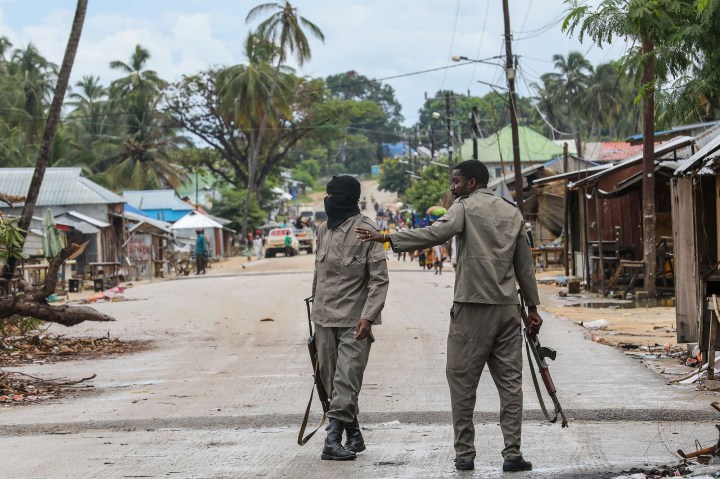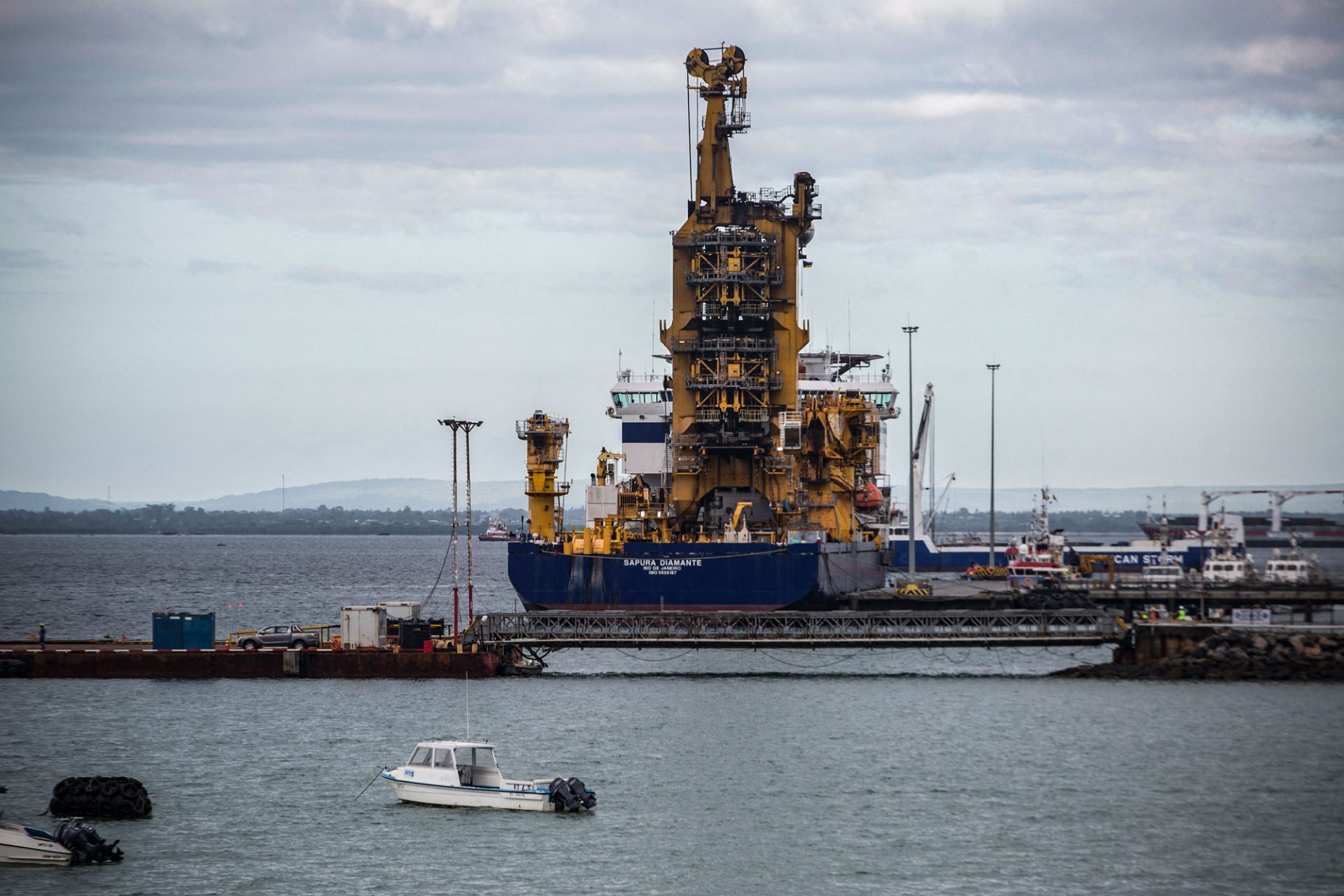FUEL SUPPLY
While jihadists prevent Total gas production in Cabo Delgado, rival offshore gas plant is about to send first shipment to Europe

SADC and Rwandan forces are struggling against Islamic State to create a Cabo Delgado safe zone
While Mozambican, the Southern African Development Community (SADC) and Rwandan troops are battling to dislodge jihadi insurgents in Mozambique’s Cabo Delgado province so that TotalEnergies can resume onshore gas production, the first shipment of gas from a rival offshore plant is imminent.
British tanker Mentor was recently reported to be heading to the new 220,000-tonne Coral Sul floating liquid natural gas (LNG) plant run by Italian energy company ENI in the Rovuma Basin off the Cabo Delgado coast, to load the plant’s first shipment of LNG.
This week, however, Nazário Bangalane, president of the National Oil Institute of Mozambique, told local paper Noticias that no shipment was planned. Nevertheless, oil industry sources expect the shipment soon. Coral Sul’s timetable for LNG production has been accelerated to meet a sharp spike in demand from Europe, which is facing energy shortages as winter looms and as it reduces its dependence on Russian gas because of the war in Ukraine.
Furious competitors
Security sources say French company TotalEnergies is furious that ENI has stolen a march on it, as it sits out the high-price gas demand, because Mozambique and its military allies have still not been able to create a safe zone around its Afungi gas plant at Palma in Cabo Delgado.
Mozambican President Filipe Nyusi said on 5 August that TotalEnergies could return. But a security source in Mozambique told DM168 that Nyusi’s assurance was “hugely premature”.
In July 2021, first Rwanda and then the SADC each deployed troops to Cabo Delgado with a mission to expel the insurgents. Though they have had some successes, the insurgents have still managed to conduct more than 50 attacks, killing many civilians since 8 May when they changed their name from Islamic State Central Africa Province to Islamic State Mozambique.
Piers Pigou, International Crisis Group’s senior consultant for southern Africa, notes that, although the Rwandan Defence Force and the SADC Mission in Mozambique (Samim) have succeeded in dislodging the insurgents from many places, this has driven them southwards and westwards, where they have attacked and displaced local populations as well as threatened commercial mining operations.
President Cyril Ramaphosa said on 18 August after the SADC summit in Kinshasa that “the pleasing thing is that the people who had fled the various areas of Cabo Delgado are returning to their homes”.
Visit Daily Maverick’s home page for more news, analysis and investigations
However, Pigou said this was a “selective reading”. Some internally displaced persons (IDPs) had returned to their homes – often because they were forced to by hunger – but others had been newly displaced from the areas where the insurgents had fled to, under attack.
The International Organization for Migration confirms this, calculating that the number of IDPs in Cabo Delgado has risen from 784,000 in February to 870,000 now. The total for all of northern Mozambique, which includes neighbouring Nampula province, is now 940,000, it says.

The Sapura Diamante, an offshore-construction support vessel for the gas industry, in Cabo Delgado, Mozambique. (Photograph by Alfredo Zuniga/ AFP)
Tension rife
Pigou believes the battle against the insurgents is being undermined by “debilitating tensions” and lack of cooperation between Samim and Rwandan forces.
Another security source told DM that the commanders of the two forces had recently met but had failed to resolve their differences.
Pigou also said none of the three forces fighting the insurgents was really “fit for purpose” despite considerable training by the US, the EU and others. Part of the problem was weak intelligence. Worse still, another security source says it seems that spies are sometimes giving insurgents advance warning of attacks. And Pigou said the lack of air assets “is just astonishing”. The forces share just a handful of utility helicopters and do not seem to be deploying any attack helicopters.
Another problem, Pigou said, was that in April SADC had decided to shift Samim’s mandate from “Scenario 6” to “Scenario 5”, i.e. from peace enforcement to peacekeeping. Yet the conditions on the ground still required a lot of peace enforcement to pursue the insurgents as they dispersed into dense bush, he said.
South Africa recently introduced its combat team Alpha – the 2nd infantry battalion plus parabats – but it has not really been tested yet. SA now has some 1,700 troops in the field. Another security analyst suggested the only hope for restoring Cabo Delgado now was through negotiations with the insurgents. DM168

This story was first published in the Daily Maverick’s weekly newspaper DM168. The newspaper is on sale at all retail outlets

















 Become an Insider
Become an Insider
Comments - Please login in order to comment.